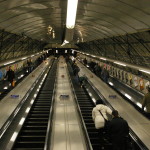 Today a roundtable I have edited on ‘The Urban as Emergent Key Concept for Media Theory’ has been published online in Mediapolis: A Journal of Cities and Culture.
Today a roundtable I have edited on ‘The Urban as Emergent Key Concept for Media Theory’ has been published online in Mediapolis: A Journal of Cities and Culture.
This roundtable was initially spawned from a session at ICA 2016 in Fukuoka, Japan. In its journal form, it brings together contributions from five scholars (Zlatan Krajina, André Jansson, Myria Georgiou, Giorgia Aiello and me) that have worked with both media and urban theory. The focus of the opening essays is perhaps more conceptual than empirical (which some people at the ICA session actually didn’t seem to like that much, but there you go). In the main, it’s about how the urban – and related concepts like the city, urbanism and urban space – have travelled in and through media theory and research.
I’ve listed a little more detail on the opening essays below. Over the next three weeks, a set of responses from the contributors will be added. Of course, it’d be interesting if there were also some thoughtful comments made in relation to individual posts.
Currently-available contributions (full details here) are:
The Urban as Emergent Key Concept for Media Theory: An Introduction – Guest editor Scott Rodgers introduces the main thematic issues and questions to be addressed.
Back to the City – Zlatan Krajina suggests media studies returns to its roots in the city, to rekindle its early, less disciplinary, instincts.
Mediatization and Urban Struggle – André Jansson connects the ambiguity of “the urban” with that of “mediatization”, considering their relationships through the example of urban exploration.
Right to the City, or Compulsion to Connect? – Myria Georgiou reflects on the politicized relationships between the right to the city and emergent compulsions to communicate digitally.
A Visual-Material Approach to the City – Giorgia Aiello presents a visual-material approach to the communicative dimensions of urban built environments, linking both mediation and mediatization.
Theorizing Media after the Urban Revolution – Scott Rodgers argues that conceiving of the urban as processual, amorphous, relational and unbounded provokes a critical rethinking around why, where and how we study urbanized media.
0 Comments Leave a comment